Our “Radio’s Most Innovative” series continued to shine the light on swashbucklers, inventors, and crusaders from radio past and present. One of the best examples of current innovation is none other than the third largest broadcaster, Townsquare Media, and their CEO, Steven Price.
Townsquare’s properties are primarily in small markets, but their out-sized approach to revenue generation and the local event piece of the puzzle are reasons to take a deeper look at what they’ve accomplished in the five years they’ve been in existence.
Critics of radio broadcasting companies these past few years always seem to cite a lack of imagination and innovation, little risk taking, and a tendency to do things the way they’ve always been done. But the fact is, broadcasters are more willing than ever to put in on the line and test drive different approaches.
A case in point is Townsquare Media, a company that is just five years old, but has quietly become the third largest AM/FM operator in the U.S. At more than 300 stations, Townsquare is a nationwide force, and they’ve done it by throwing away the conventional radio playbook.
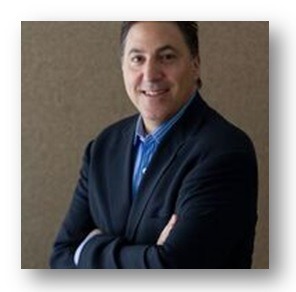 None of the stations in their portfolio is in the Top 25 markets. No New York City, Dallas, Phoenix, or San Francisco. So, first and foremost, there’s an intrinsic belief in the power of smaller market, local radio.
None of the stations in their portfolio is in the Top 25 markets. No New York City, Dallas, Phoenix, or San Francisco. So, first and foremost, there’s an intrinsic belief in the power of smaller market, local radio.
But it goes beyond that, because since Day One, Townsquare has shown a laser-focused commitment to digital, with an emphasis on websites, music blogs, and other online content. Townsquare has been about media and entertainment partnerships and acquisitions, including acquiring websites from AOL, and other digital assets.
These days, Townsquare is in the process of buying up festivals and event companies. One of their defining differences is their emphasis on non-traditional revenue, which is rooted in their commitment to event programming. In 2014, the company reported that nearly 30% of its net revenue came from sources other than terrestrial ad sales.
So when you look at their financial spreadsheet, a question that comes to mind is whether Townsquare is a radio company? A media company? An events company? Or is it a hybrid that leverages its assets to build brands and generate revenue?
A look at their website indicates Townsquare is all these things – and more.
Their CEO, Steven Price, is the visionary behind his company’s unique approach. You don’t read his name in the trades every other day, as he is known for keeping a low profile. So we appreciate him taking the time to answer our questions about Townsquare’s innovative business model.
Steven’s view of radio and how it fits into the larger entertainment and events ecosystem is smart, savvy, and different than what you typically hear from the corner office. More and more companies are taking note of Townsquare’s strategy especially as revenue from that “off-air/other” category continues to grow, while spot dollars remain flattish. As you’ll read, giving Townsquare the “Radio’s Most Innovative” designation this week was a no-brainer.
JM: You’re now the third largest broadcaster in the country. Was that major footprint part of the plan when you launched the company just five years ago?
SP: Yes. Our plan from the beginning was to build a company with significant scale so we could have the resources – both at the corporate level and in the field – to support the local teams as they worked to create engaging content for consumers and to provide cross platform solutions for advertisers. It is very difficult, for example, to have the infrastructure and R&D required to develop high quality digital and social products and platforms unless you have enough markets to bear those costs.
Further, we wanted to be able to share best practices and ideas across markets rather than having each local team work in isolation. For us, the key is to have national scale and scope with a decentralized operating approach, allowing the local teams to own the responsibility for growing their audience and their revenue.
JM: The RAB continues to release data that shows a flat-to-down line for spot/network revenue, but growth in digital, and explosive increases in “off-air/other.” That’s been no surprise to you, but how did you know 5+ years ago the industry would be headed in this direction?
SP: When we started Townsquare in 2010, we knew that multi-product, cross platform organizations would be the winners over time and we wanted that as part of our DNA at the outset. Our plan was to employ our radio assets as a platform upon which to build multi-product local media and entertainment businesses. Our goal was not only to be a thriving radio company but to use the key strategic assets resident in the traditional radio business model to launch separate but adjacent businesses with large audiences attractive to advertisers.
These key strategic assets include: powerful, heritage radio brands; loyal audiences, many of whom engage on a daily basis with live and local content; large proven local sales forces with longstanding relationships with thousands of local small and mid-sized businesses; and robust active local email databases. Our ultimate goal was to use those assets to launch digital content, live event and digital marketing services businesses which would complement the radio stations but also become profitable business lines.
JM: Please talk about your background – why radio and why now?
SP: When we prepared to launch Townsquare, we sought to identify the best media assets we could buy that would thrive and remain relevant in an environment that was quickly shifting towards digital content and distribution. In other words, assets which could help us evolve into a diversified and growth business that capitalized on, rather than cowered from, technology and the evolution in consumer behavior. That media was, and is, radio.
Radio remains a dominant form of local media and entertainment. Its audience remains remarkably stable, with 91% of Americans listening to terrestrial radio for an average of two hours per day. In 2007, 235 million Americans listened to at least some radio each week. Today that number stands at 245 million. Plus, terrestrial radio’s audience is inherently segmented by geography and demographic groups. Each station targets a certain audience based on the music played, allowing us to provide advertisers with targeted advertising. Radio is and remains both incredibly relevant and resilient to audiences and advertisers.
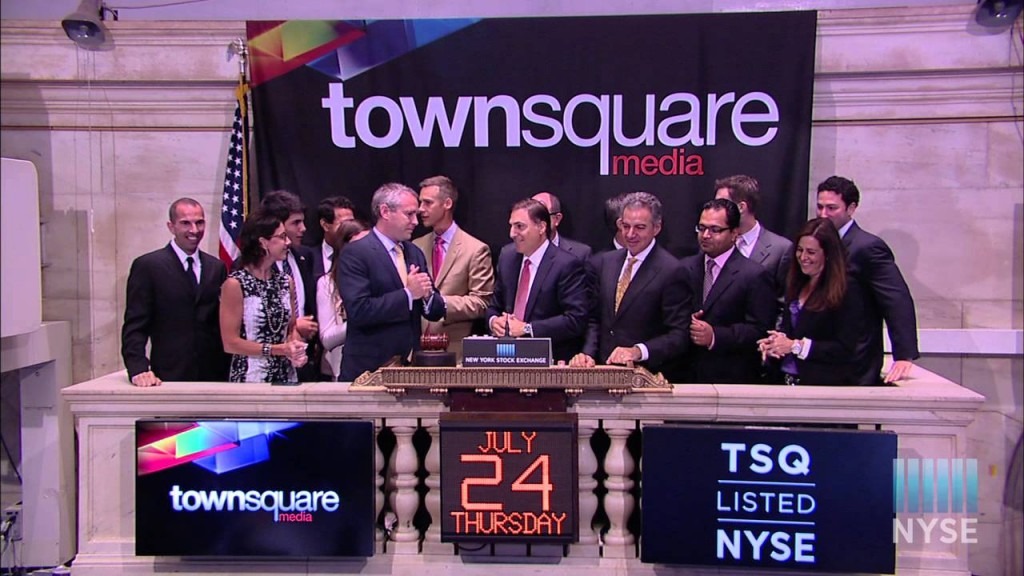
JM: Most of the focus has been on smaller markets. Explain that strategy and why you feel Townsquare has an advantage over companies fighting it out in major markets.
SP: Audiences and advertisers in small and mid-sized markets are under-served in terms of great media and live event options. They are therefore less competitive markets and optimal to build a diversified, multi-product company that has large audiences across all platforms. From a radio perspective, we do not compete against any of the five largest English language national radio competitors, as measured by revenue, in 43 of our 66 local markets, allowing our brands to gain a greater share of both audience and advertising expenditures in our markets.
In general, we are seeking to operate the largest local digital content business, the largest live event business, and the largest digital marketing services business in our markets. If we had focused on the nation’s largest markets, we believe it would have been difficult, if not impossible, to achieve our goal of creating meaningful and profitable digital and event businesses. Further, our view was that the big national media and Internet companies would be unlikely to deploy local sales forces to actively compete for local dollars in our small and mid-sized markets in the near or medium term, if at all. So far, that has proven to be true. We see an opportunity to continue to bring big market media experiences to our underserved local market audiences and advertisers.
JM: You have grown by acquisition – and not just buying more radio stations – but acquiring other assets, from concerts and festivals to NAME (North American Midway Entertainment) to AOL assets to the MOG Music Network. How do these purchases strategically fit in the radio core of the company and are there more on the way?
SP: We are seeking to build a diversified local media and entertainment company and doing so organically and through selective acquisitions. We have stringent acquisition criteria that must be met in order for us to transact, and the acquisitions must fit our fundamental strategy. We look to acquire market leading operators in markets that are similar to Townsquare markets, for accretive prices.
In addition, we believe that each of the completed acquisitions enhance our ability to reach a larger audience, and sometimes with new products or services. Regarding non-radio acquisitions, we believe that increased interaction with consumers across other products and platforms in turn reinforces consumer loyalty and affinity toward our radio brands.
JM: Are you a radio company…or are you a media entertainment company? Or something else?
SP: While we love our radio stations and have made quite a few radio acquisitions, we have never defined ourselves as just a radio company. In terms of assets, yes, we are a diversified local media and entertainment company. More broadly though, we see ourselves as a “community-based engagement and activation company.”
We are in the business of creating compelling, real-time, shared experiences for our audiences and advertisers, at scale. Radio is important, but it is only one of the products and platforms that we offer our consumers and our clients.
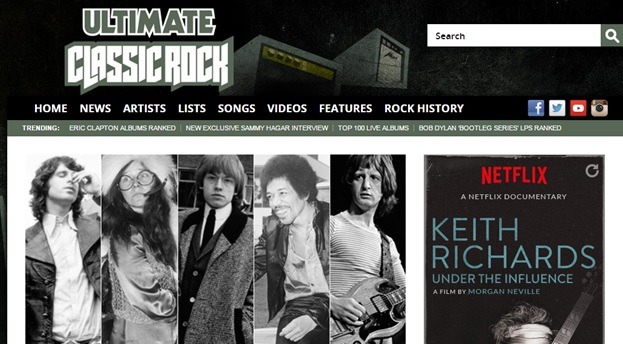
JM: Talk about your digital assets corporately and on the station level. What’s the vision for the Townsquare digital team?
SP: Digital is one of the platforms that we use to aggregate engaged audiences and then offer to our advertisers. We spend a lot of time creating great, relevant content that consumers crave in our local markets. Once we’ve built scale audiences, we seek to monetize them in multiple ways across the digital and social landscape. Our corporate digital team supports the local markets. In addition, we also have 16 national websites focused on music and entertainment, many of which are category leaders.
JM: More than any other broadcaster, you’ve committed to event marketing via acquisitions of festivals, concerts, and other assets. Explain why Townsquare’s emphasis has focused so heavily on non-spot revenue generation.
SP: Our strategy is based on providing multiple products across all our platforms. The result is that we have diversified revenue streams, but the key is that we can offer advertisers whatever platform they think can help them solve their business need. In some cases, it might be a radio schedule; in other cases, radio won’t be part of the mix of inventory they buy.
Events are an important part of our product offering, as are both radio and digital products. Live Events continue to be attractive to consumers and is a growing area for marketers who want to create deeper brand connections with these consumers. Our company is focused on not being reliant on any single product or revenue stream to satisfy audiences or solve client business needs.
JM: Many stations have hesitated to take a stake in concerts and other events for fear of losing money. You have dived in head-first. Why are these events and festivals a smart risk for Townsquare?
SP: Yes, we take capital risk on our events as we are the promoter and producer. And yes, in some cases, we lose money. But in 98% of the cases, we make money because we have a disciplined approach to capital allocation and risk mitigation. Many of our events are recurring in nature. So while we produce and promote approximately 650 events per year, only a small number of these events are new, unproven concepts.
The size and stability of our event portfolio allows us to take some risk on new events each year. In general, if you want to be in the event space, you need to be staffed correctly and accept that not all events will be homeruns.
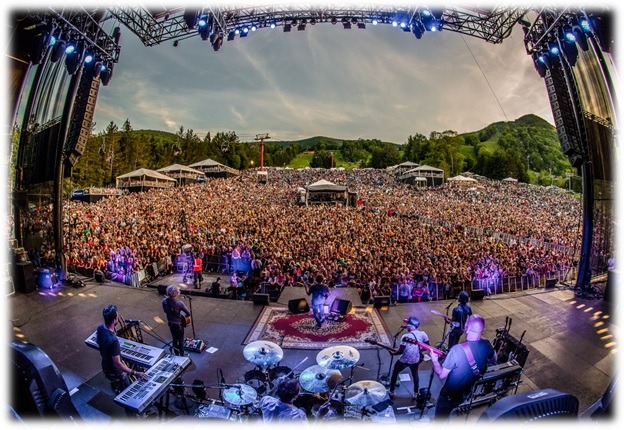
JM: How has research and data helped you improve the concerts, events and festivals you now manage and own?
SP: We conduct extensive research before and after we launch events and throughout their life cycle. Consumers can be fickle, so actively involving them in the process, having a direct and ongoing dialogue with them, understanding their desires and willingness to entertain new things is critical to our success.
JM: How have you been able to integrate local stations in the marketing and promotion of these events? Has it been a difficult sell or do they see the upside in connecting with these local happenings?
SP: We fully integrate our radio, digital, and event assets within our markets and cross-promote to the extent necessary and prudent. We think of our stations as brands versus stations. When we do that our live event and digital platforms become natural extensions of the total brand experience and offering, so integration becomes organic and seamless.
JM: Consumers and advertisers often see radio as a medium that is no longer viable from an ROI standpoint. How do your results refute those claims?
SP: There has been much research within the past year that strongly evidences the powerful ROI that radio offers and how effective the medium is as compared to TV, newspaper and other media. We believe that and so do our clients.
JM: And how do you view the long term health of radio, and is there a difference between the fates of smaller and larger markets in your mind?
SP: As the statistics for radio indicate, radio doesn’t have a listener issue but rather a perception issue, particularly with some of the larger national agencies. We strongly believe that live and local radio, that offers unique and compelling content, has a strong and viable future particularly in the small to mid-sized markets in which we operate.
JM: Many may not be aware of Townsquare Cares. Can you talk about that initiative and why it’s important to the company?
SP: One of my favorite stats is that in 2013, we helped raise over $40 million for local charities in our markets. This is a great example of our broader positioning of being a “community engagement and activation company” in action. We are a key part of our communities and ensuring that we and our employees give back and help those in need in our communities is an important goal. Townsquare Cares focuses specifically on military families but we support lots of other organizations as well.
JM: What is your best piece of advice to someone with an innovative idea for the radio industry who may be struggling to bring it to market?
SP: Join us!
Full disclosure: Townsquare is a Jacobs Media client.
INNOVATION QUOTE OF THE WEEK
“Don’t be afraid of new arenas.”
Elon Musk, CEO of Tesla Motors
More of Radio’s Most Innovative
- Radio’s Most Innovative: Radio Broadcasting
- Radio’s Most Innovative: Dr. Ruth Westheimer
- Radio's Most Innovative: Andy Economos' Selector
- Radio’s Most Innovative: Greater Public’s Doug Eichten
- Radio’s Most Innovative: Dan Vallie, National Radio Talent System
- Media And Technology In 2025: Believe It Or Not! - April 18, 2025
- In Radio, You Just Never Know - April 17, 2025
- The Secret To Making A Great Podcast (And Great Radio) - April 16, 2025




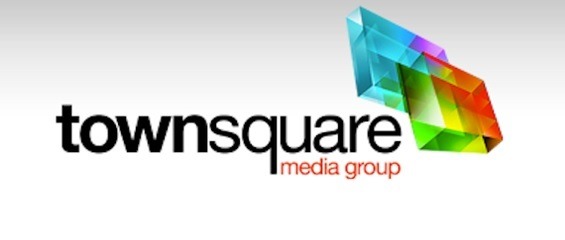

Townsquare Media has a terrible product: the radio stations. They don’t care about that, as sales is busy selling everything from web sites to reputation protection services. Calling on new business is rare. Account executives change more than the a rolls of toilet paper at Yankee stadium.
Let’s talk about one of their social media foundations, “12 content posts each week from the programming and air staff”. It is awful, many posts are grafted from other sources, and the syntax and spelling are often problematic. Radio Pup their streaming app fails so often it is a joke.
Events can be profitable but many are losers, upsetting the vendors and disappointing the audience. Their national contests are not rigged, however they are so badly handled by corporate many listeners in various markets are shut out of ever winning a contest. VP of Programming is a hack, with old and bad ideas he took from CBS, and the quality of programmers, and air talent is among the worst in the industry. Why? Because there is no pride in the product. Spin it anyway you want, this is the truth. Does Townsquare do some things right, sure. But overall it is a poorly run and miserable radio company.
Mike, there is no shortage of opinions – good and bad – about all broadcasting companies, from both the inside and outside. You’re entitled to yours, however, but it’s hard to argue with the results and the company’s innovative foundation. Thanks for the comment.
If like Mike says, the execution is poor (which I doubt if Jacobs is consulting)
the ideas expressed here are spot on and the the results bare that out. Radio needs to be able to help clients with cross platforms. Going live and local with air talent sets them apart from lots of stations in small markets. If the business model is good, the execution will get better, after all, the company is just 5 years old.